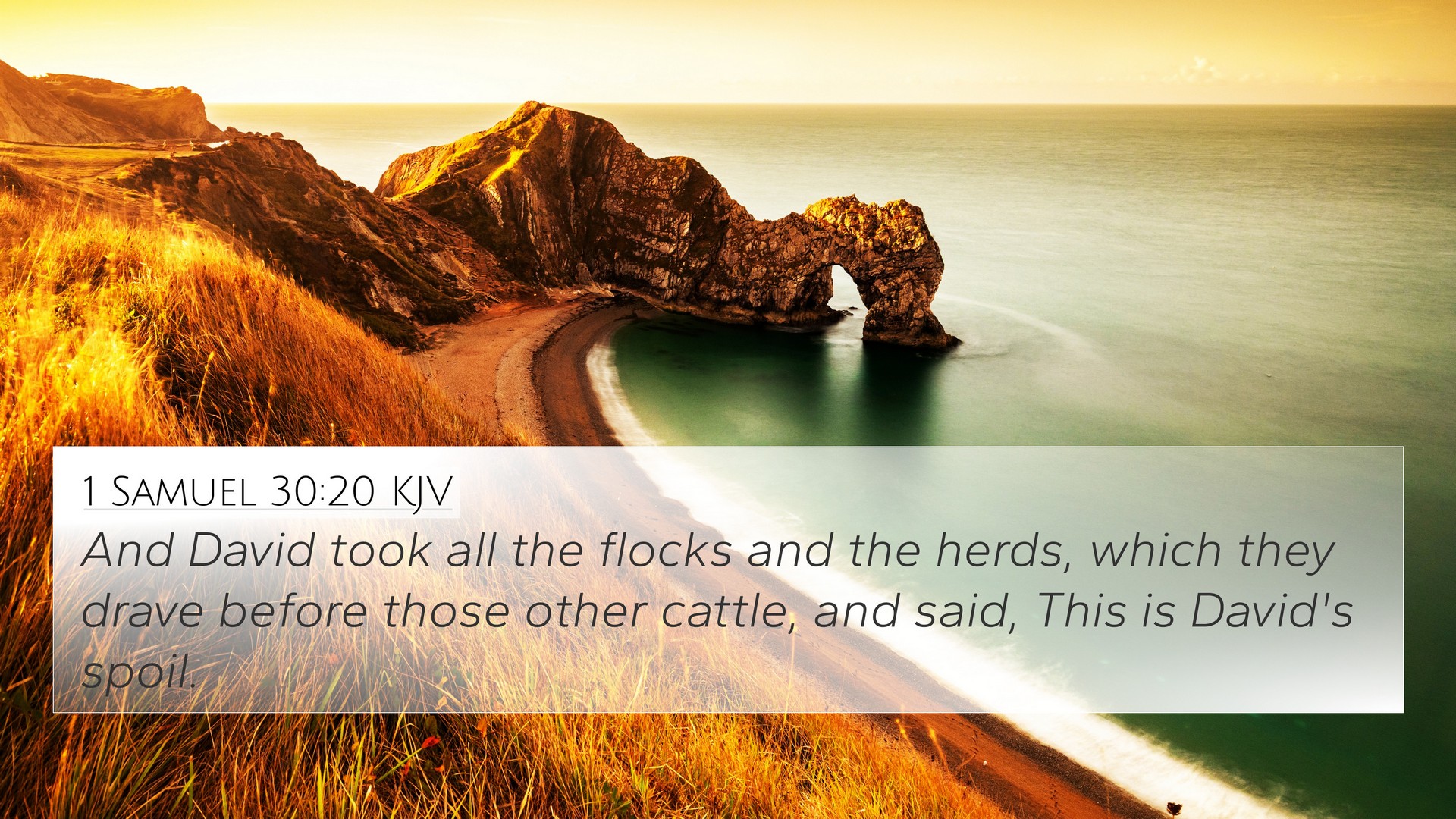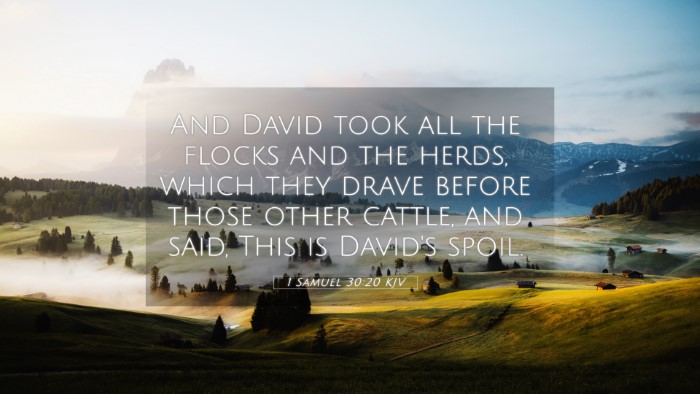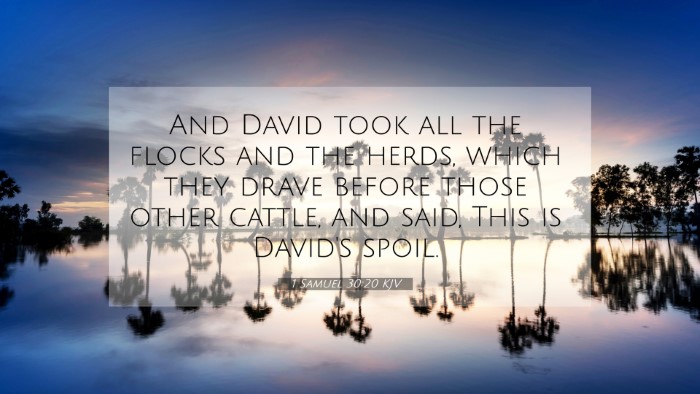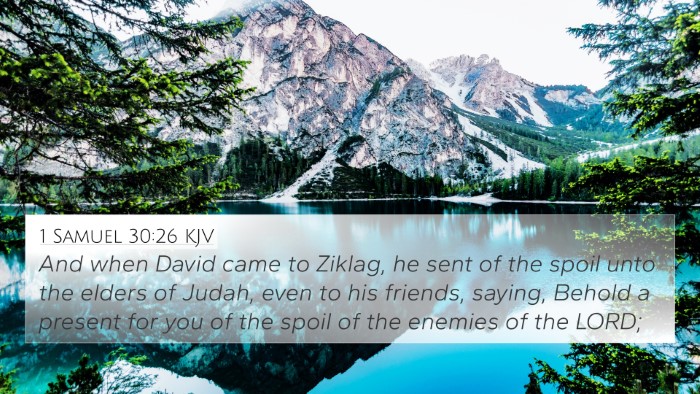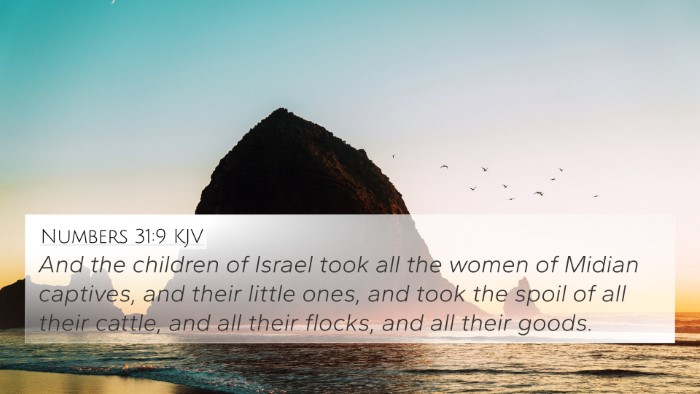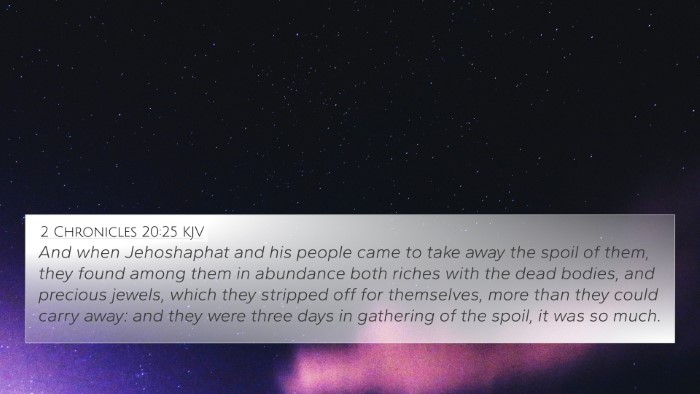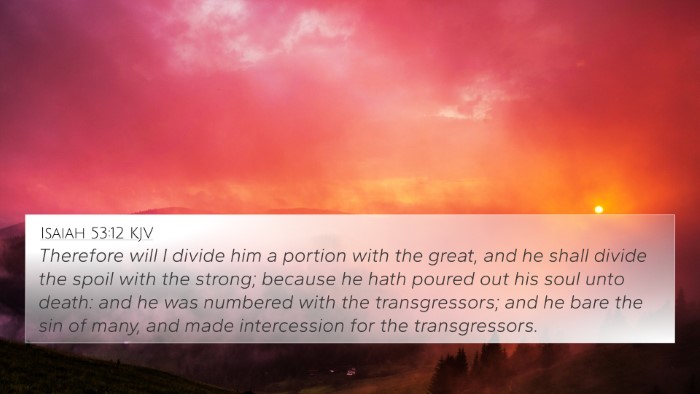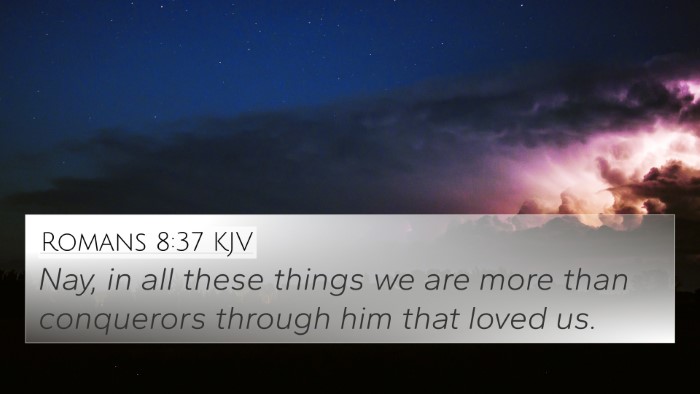Understanding 1 Samuel 30:20
Bible Verse: "And David took all the flocks and the herds, which they drave before those other cattle, and said, This is David's spoil." (1 Samuel 30:20, KJV)
Verse Meaning Overview
The verse 1 Samuel 30:20 describes the moment when David, after successfully defeating the Amalekites, claimed the spoils of battle. This passage signifies both victory and the restoration of what was lost to his people, highlighting the theme of divine retribution and bounty for faithfulness and leadership.
Contextual Analysis
To fully grasp the significance of this verse, one must consider its context within the narrative of David's life. At this point, David had been on the run from Saul and faced significant challenges, including the razing of Ziklag, where his family and belongings were taken captive.
Commentary Insights
-
Matthew Henry's Commentary:
Henry emphasizes the idea that David's victories are attributed to God’s favor and support. He notes that the spoils serve as a reinforcement of David’s rightful position as God's chosen leader. The act of collecting the spoils is both a reward for his strength and a testament to God's providence in his struggles.
-
Albert Barnes' Commentary:
Barnes points out the significance of the term "spoil," suggesting that it not only represents material wealth but also the recovery of lost hope for David and his men. The victory over the Amalekites symbolizes God's deliverance, which is especially vital for David as he seeks legitimacy as king.
-
Adam Clarke's Commentary:
Clarke highlights the importance of teamwork and the collective effort of David's men in securing the victory. He illustrates how the spoils are a representation of God's justice, rewarding those who endure trials with faith and loyalty. The passage suggests a restoration, both materially and spiritually, for David’s leadership and the nation of Israel.
Thematic Connections
This verse resonates with broader biblical themes, including recovery, divine justice, and the rightful inheritance of blessings. David not only reclaims what was lost but also sets a precedent for his leadership and the blessings that come from following God's direction.
Related Bible Cross-References
- 1 Samuel 30:16 - The description of the Amalekites and David’s approach.
- 2 Samuel 8:2 - David conquering Moab and the concept of tribute.
- Psalm 68:12 - God provides blessings with the expectation of rewards for those who follow Him.
- Proverbs 13:21 - The connection between righteousness and rewards.
- 1 Chronicles 14:10 - David seeking God's guidance in battle.
- Luke 12:48 - The principle of harvest reflecting the amount of responsibility held.
- Romans 8:37 - More than conquerors through Him who loves us.
Insights on Biblical Connections
This verse illustrates the powerful connections present throughout Scripture. By examining the themes of leadership, victory, and divine provision, one can link it to various other passages, allowing for a deeper understanding of God's overarching narrative in the Bible.
Implementing Bible cross-reference tools can be beneficial for anyone looking to enrich their study of this verse. Utilizing resources like Bible concordances and Bible cross-reference guides can deepen the exploration of inter-Biblical dialogues and enhance the understanding of contextual relationships between verses.
Conclusion
In summary, 1 Samuel 30:20 serves a crucial role in understanding David's journey as a leader and the importance of divine support in achieving victory. The themes of reclamation, justice, and leadership intertwine with numerous connections in Scripture, revealing profound truths that resonate across both the Old and New Testaments.
